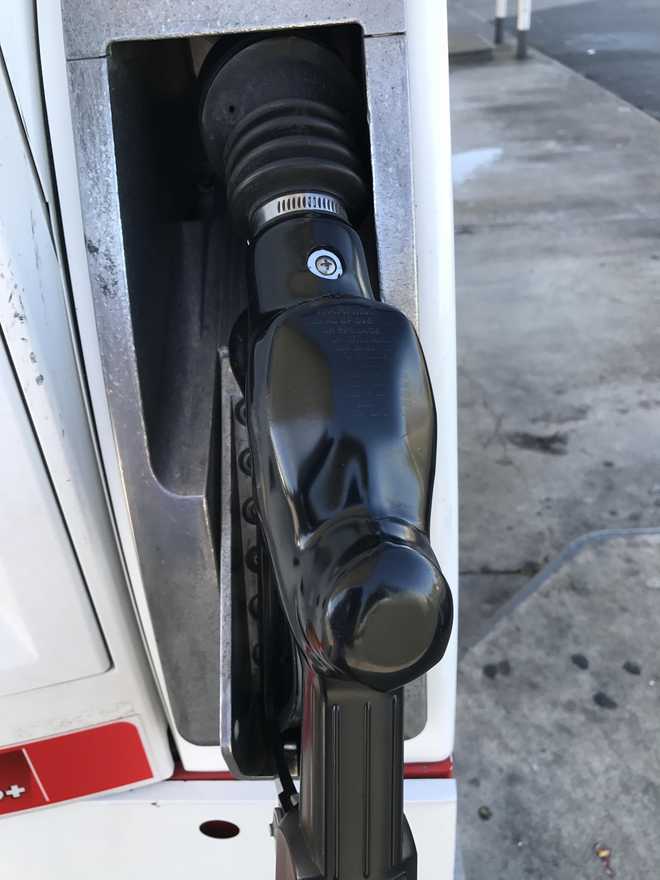Oh Hell to the NO! California legislators ignored the warnings, allowed infrastructure deterioration over the years and instead spent (misappropriated) our tax dollars on programs designed to make them look good, get reelected and perpetuate the welfare state.
Instead of continuing to allow them to play us off as though they are not accountable, how about holding their feet to the fire to make things right without stealing more money from our wallets. Didn't former governor Davis get recalled for his errors?
I don't know about you, but I'm going to pressure both my local
assembly member and senator to NOT support this or any bill that
attempts to cover up mismanagement of our hard earned tax dollars due to
bad/selfish decisions and corruption else find themselves out of a job
at the next election.
Oh and remember that before the proverbial dam broke, Brown wanted to impose a 42% Gas Tax Hike to Bail Out CalPERS.
The legislative swamp definitely needs draining.
Oh and remember that before the proverbial dam broke, Brown wanted to impose a 42% Gas Tax Hike to Bail Out CalPERS.
The legislative swamp definitely needs draining.
Senate Bill 1 could produce $6B a year
SACRAMENTO, Calif. (KCRA) — California’s
Senate Bill 1, which is aimed at improving the state’s transportation
infrastructure, easily cleared the state Senate’s Governance and Finance
Committee by a 5-1 vote Wednesday.
If passed, SB1 would generate an estimated $6 billion annually for the state’s roads, bridges and transit systems.
FAST FACTS:
The money would be split down the middle between state and local agencies for maintenance and repairs.
Money raised by SB1 would help tackle the state’s 10-year, $59 billion maintenance shortfall and local governments' $78 billion shortfall for roads, bridges and highways.
Here’s how the bill aims to pay for infrastructure improvements:
If SB1 makes it to Gov. Jerry Brown’s desk in its current form, the gas tax would increase for the first time since 1994.
“You’re actually paying less taxes now in gasoline taxes than you did in 1994 because the economy of the average car – fuel economy – is better,” Beall said. “If you use less gasoline, you’re paying less taxes.”
Beall said the state’s increase in population and cost of living make the current budget for road repairs unsustainable.
The lone voice of opposition in committee on Wednesday came from Sen. John Moorlach, R-Costa Mesa, who argues the bill places too much of a burden on the state’s poor.
“They're hurting those at the poverty level or below, which is right now the highest of any state in the nation,” Moorlach said.
However, Moorlach and Beall do share common ground.
Both believe zero-emission drivers need to pay some sort of fee because they’re able to use state and local highways and roads without contributing to their maintenance through the funds collected from a gas tax.
However, Moorlach said the Democrat-controlled legislature is missing the bigger picture.
“We've got a state that has said, ‘We want to incentivize the acquisition of electric cars. Oh, and by the way, we fund our roads through gas taxes,'’’ he said. “So, again, there's this disconnect, where Jerry Brown is incentivizing one, penalizing the other.”
The bill heads to the Senate Appropriations Committee next. If it passes there, it would then head to the Senate floor.
Advertisement
FAST FACTS:
- SB1 clears Senate Governance and Finance Committee
- SB1 would raise the gas tax, diesel tax and vehicle registration fees to pay for infrastructure improvements
- Increase in the gas tax would be the first of its kind in 23 years
The money would be split down the middle between state and local agencies for maintenance and repairs.
Money raised by SB1 would help tackle the state’s 10-year, $59 billion maintenance shortfall and local governments' $78 billion shortfall for roads, bridges and highways.
Here’s how the bill aims to pay for infrastructure improvements:
- Increase the gas tax by 12 cents per gallon over three years, with a 6-cent increase in the first year followed by two years of 3-cent increases
- Increase the diesel fuel excise tax by 20 cents and increase the diesel sales tax by 4 percent
- Increase vehicle registration fees by $38
- Require drivers of zero-emission vehicles to pay an annual $100 fee toward maintenance and repair
If SB1 makes it to Gov. Jerry Brown’s desk in its current form, the gas tax would increase for the first time since 1994.
“You’re actually paying less taxes now in gasoline taxes than you did in 1994 because the economy of the average car – fuel economy – is better,” Beall said. “If you use less gasoline, you’re paying less taxes.”
Beall said the state’s increase in population and cost of living make the current budget for road repairs unsustainable.
The lone voice of opposition in committee on Wednesday came from Sen. John Moorlach, R-Costa Mesa, who argues the bill places too much of a burden on the state’s poor.
“They're hurting those at the poverty level or below, which is right now the highest of any state in the nation,” Moorlach said.
However, Moorlach and Beall do share common ground.
Both believe zero-emission drivers need to pay some sort of fee because they’re able to use state and local highways and roads without contributing to their maintenance through the funds collected from a gas tax.
However, Moorlach said the Democrat-controlled legislature is missing the bigger picture.
“We've got a state that has said, ‘We want to incentivize the acquisition of electric cars. Oh, and by the way, we fund our roads through gas taxes,'’’ he said. “So, again, there's this disconnect, where Jerry Brown is incentivizing one, penalizing the other.”
The bill heads to the Senate Appropriations Committee next. If it passes there, it would then head to the Senate floor.





























































































































